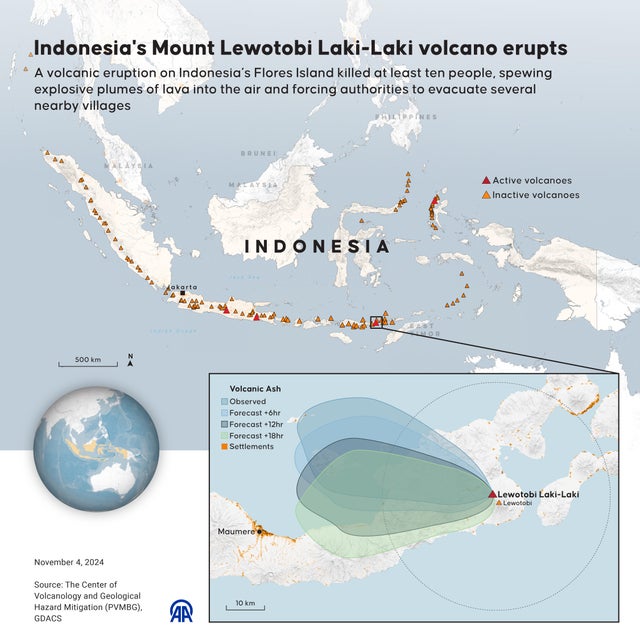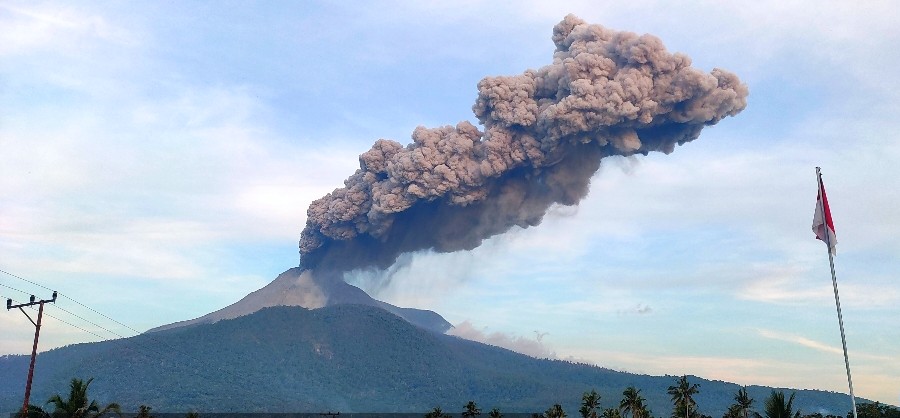In response to Mount Lewotobi Laki-Laki’s deadly eruptions on the island of Flores, Indonesia is set to permanently relocate thousands from the high-risk zone surrounding the volcano.
What do you do when you have a really disruptive neighbour? Well, if it’s an active volcano, sometimes the only good option is to find a new ‘home sweet home.’
With that in mind, Indonesia plans to permanently relocate over 16,000 residents after a series of Mount Lewotobi Laki-Laki eruptions, which left 10 dead and blanketed surrounding areas with fireballs and ash. Officials confirmed Wednesday that the affected villagers would be moved to safer ground, with relocation support provided by the government.

Authorities raised the volcano’s alert to the top level on Indonesia’s four-tier system after a series of eruptions began Sunday night, prompting officials to instruct residents and tourists to steer clear of the 7-km radius around the crater. Over 2,600 families in the vicinity, on the well-visited island of Flores, were advised by the National Disaster Mitigation Agency (BNPB) to evacuate permanently.

“The mountain cannot be moved. We must move,” said BNPB head Suharyanto, as he addressed evacuees at a temporary shelter in a video shared by the agency on Wednesday. He underscored that vacating the area was a necessary safety measure. BNPB spokesman Abdul Muhari added that the decision was part of long-term efforts to mitigate the risks of future eruptions.
As of Tuesday morning, about 2,472 of the 16,086 residents from eight villages had been evacuated, Heronimus Lamawuran, spokesperson of East Flores regional government told media.

Lewotobi Laki-Laki erupted three times on Monday night, sending a massive ash cloud some 2 km into the atmosphere. It erupted once again on Tuesday, spreading more ash over the community. Some residents recalled the frightening moments as the volcano stirred to life. “I saw flames coming out and immediately fled. There were ashes and stones everywhere,” shared 32-year-old hairdresser Hermanus Mite.
The eruptions, paired with adverse weather conditions, left thousands of residents impacted, as ash columns towered 500 to 2,000 meters high for several days. The name Laki-Laki, meaning “man” in Indonesian, pairs this active stratovolcano with its quieter counterpart, Perempuan” or “woman.” The pair of mountains are known locally as the “husband and wife” peaks.

Situated along the Pacific “Ring of Fire,” Indonesia’s geographical positioning makes it particularly vulnerable to volcanic and seismic events, with frequent eruptions occurring across the archipelago.
Information from AFP, Reuters, and The Jakarta Post contributed to this article.
"ExpatGo welcomes and encourages comments, input, and divergent opinions. However, we kindly request that you use suitable language in your comments, and refrain from any sort of personal attack, hate speech, or disparaging rhetoric. Comments not in line with this are subject to removal from the site. "





















